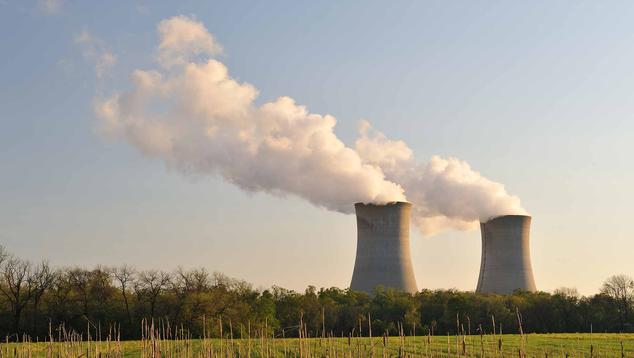Story Highlights
- 55% favor, 44% oppose nuclear energy as a way to provide electricity
- Highest percentage in favor of using nuclear energy since 2012
- Republicans, men and college graduates most likely to favor nuclear energy
WASHINGTON, D.C. -- Americans are more supportive of using nuclear energy as a source of electricity in the U.S. now than they have been since 2012. The 55% of U.S. adults who say they “strongly” or “somewhat” favor the use of nuclear energy marks a four-percentage-point uptick from one year ago. Another 44% of Americans “strongly” or “somewhat” oppose such use.
Throughout the course of Gallup’s trend, Americans have generally been more amenable to the use of nuclear energy as one of the ways to provide electricity for the U.S. when oil prices have been high and less open to it when oil prices are low.
Gallup first asked this question in 1994 and found 57% of Americans favored using nuclear energy, while 37% were opposed to its use. By 2001, when the question was next asked, views were evenly divided -- yet from 2004 through 2015, public support for the use of nuclear power again outpaced opposition, including a high of 62% in 2010.
The 2016 measurement, taken at a time of relatively low gas prices, was the only one in the trend when the majority of U.S. adults expressed opposition to the use of nuclear energy. After two readings when views were divided, in 2019 and 2022, Americans now tilt once again toward supporting nuclear energy.
The latest reading, from Gallup’s annual Environment poll conducted March 1-23, finds 25% of Americans strongly favor nuclear energy and 30% somewhat favor it, while 22% each strongly and somewhat oppose its usage.
At the start of the poll’s field period, the Biden administration committed over $1 billion to help keep U.S. nuclear power plants open. President Joe Biden has said that nuclear power is a key element to his overall climate strategy of achieving 100% clean electricity in the U.S. by 2035. In addition, investing in nuclear energy has bipartisan support in the U.S. Congress.
Even though nuclear energy is favored by Democratic and Republican leaders, U.S. adults’ support for its use continues to diverge sharply along party lines. While majorities of Republicans have consistently backed the use of nuclear energy since 2001, Democrats have been far less supportive of it.
Currently, 62% of Republicans, 46% of Democrats and 56% of independents favor the use of nuclear energy to provide electricity in the U.S. These rates are below their high points historically. Republican support for nuclear energy was as high as 76% in 2009. Democrats also recorded their highest support, 54%, that year. Still, Democrats’ support has increased since last year, perhaps due to Biden’s recent actions on shoring up nuclear energy. At the same time, Republicans’ and independents’ views have not changed statistically.
Views of Nuclear Power Also Differ by Gender and Education Level
In addition to varying by party identification, Americans’ support for the use of nuclear power in the U.S. differs by gender and education level. Two-thirds of men (67%) versus less than half of women (42%) favor using nuclear power. College graduates (63%) are also more supportive of nuclear energy than those without a college degree (51%).
Bottom Line
Nuclear energy is a key component of the Biden administration’s clean energy plan for the U.S., and although 55% of Americans now favor using it as a source of electricity, significant opposition remains, including from the president’s own party. History shows that majority opposition to nuclear energy could return if gas prices eventually revert to relatively low levels. But high gas prices combined with strong political backing by one or both parties could mean support persists for the foreseeable future.
To stay up to date with the latest Gallup News insights and updates, follow us on Twitter.
Learn more about how the Gallup Poll Social Series works.




